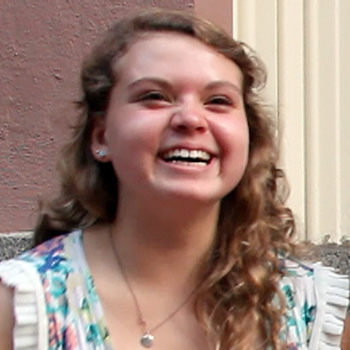
by Deva Jones | Apr 3, 2013 | Youth
The following post was written by Carly Moulis, age 17. A student at Albemarle High School, in Charlottesville, Va., Moulis was a participant in the 2012 UUCSJ summer youth program.
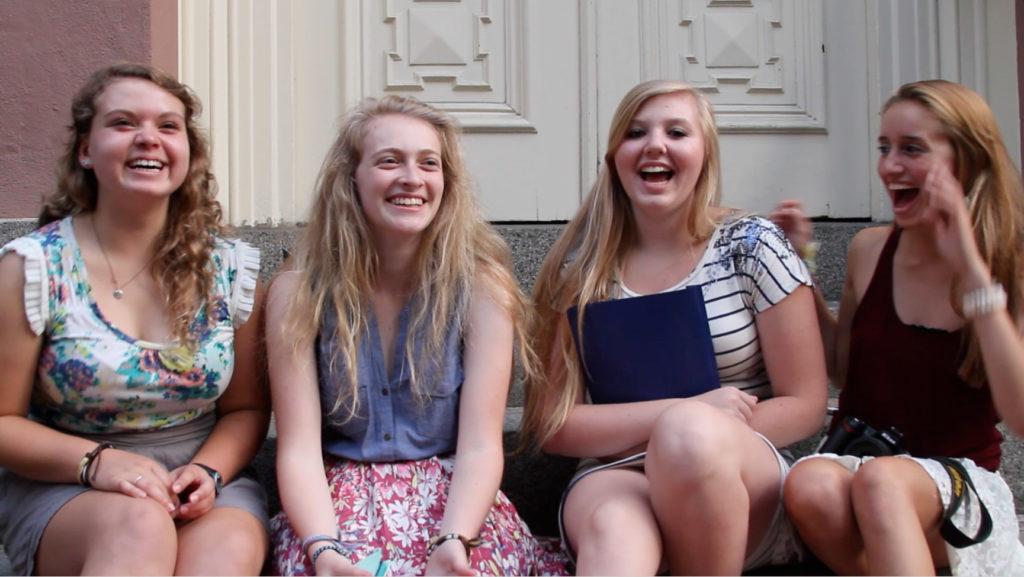
Carly Moulis, far left, and other participants in the 2012 Youth Justice Training, Rosie Cohen, Hannah Brennan, and Jamey Harman.
All my life, I have been told I am lucky. Lucky to live in the USA, lucky to have the guarantee of food, safety, support, freedom, and love. I pitied people who suffered; I felt bad for them. I signed up for the Youth Justice Summit because this thought suddenly sickened me. Pity does not make life easier, and it won’t help someone get food on the table. But what if I had the courage to go out into the world and try to help? I had just finished my sophomore year of high school, and I didn’t really know what to do next. I was sick of the bubble I lived in, and I wanted to do something.
Soon enough I was on a plane, oblivious to what my next week would hold. I could never have prepared myself for the emotional experiences I would face in Boston nor the bonds of friendship I would make there. Being with other people who wanted to change things gave me courage I could have never found on my own.
Throughout the week, we learned about social injustice and how to combat it in our lives. Before I knew it, it was our last night and I had a choice to make. I had gained insight, credibility, understanding, love, friendship, and a changed view on the world.
Now, what should I do with all of this? I could go home, back to Virginia, and forget it all. Forget the pain I saw, forget the hunger, forget the sadness, forget the injustice — but that would mean I would also forget the love I saw, forget the beauty, forget the dreamers, forget my friends, and forget who I had become.
There is pain in our world, but there is possibility within it. I spent one week in Boston at the UU College of Social Justice, but it gave me insight for a lifetime.
Learn about the 2013 Youth Justice Trainings.
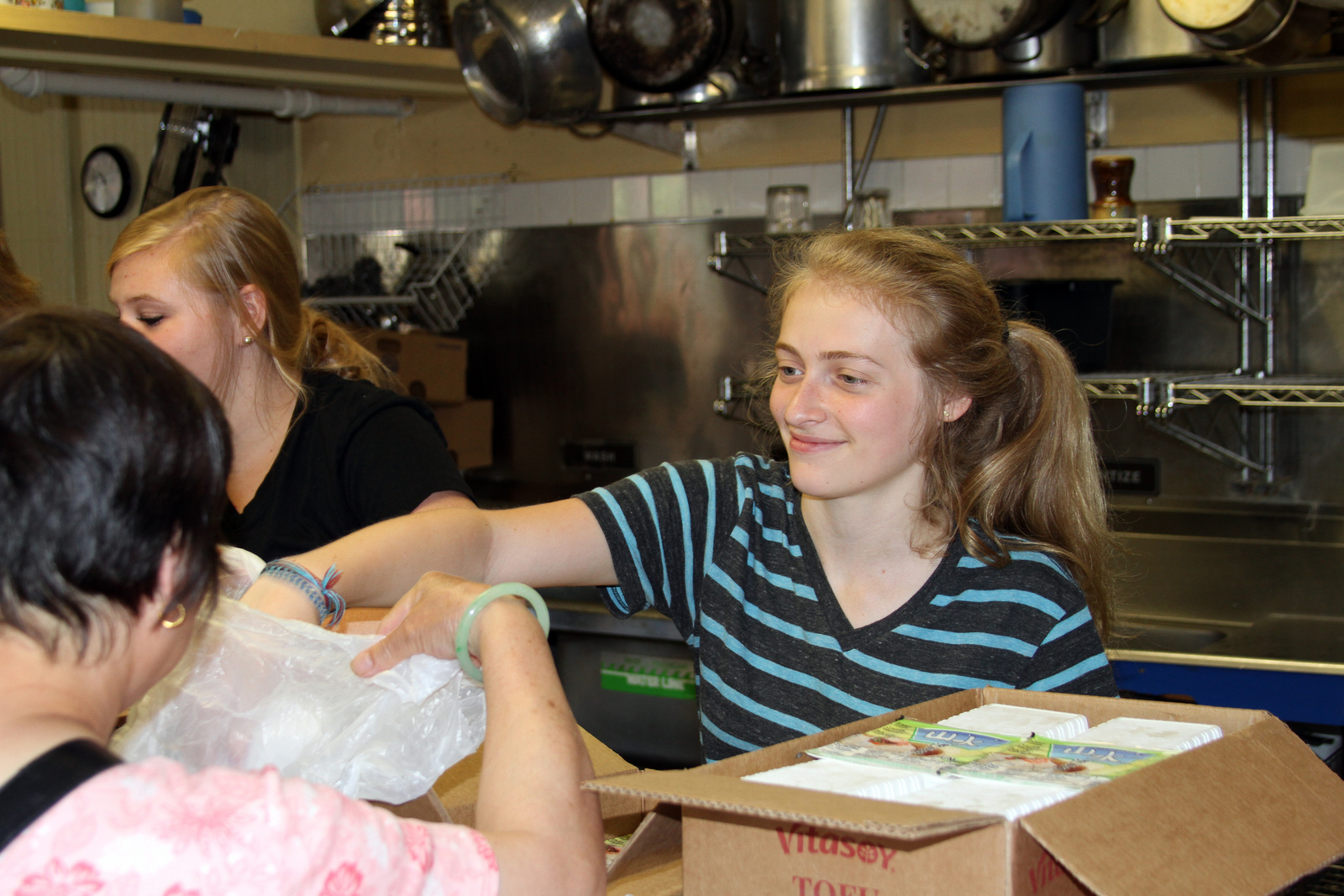
by Heather Vickery | Mar 25, 2013 | Youth
The following post was written by Rosie Cohen, age 17. A student at Woodrow Wilson High School in Washington, D.C., Cohen was a participant in the 2012 UUCSJ summer youth program.
A few days into my week at UUCSJ’s National Youth Justice Summit (NYJS), we were all gathered for a leadership training session that, to be perfectly honest, I wasn’t completely excited about. We had all spent the last few days in intense workshops and stimulating meditations — generally, activities that I felt passionate about. I didn’t think something called leadership training would bring out any of my passions for social justice.
I was wrong. In fact, this was probably one of the most exciting parts of the week for me, because suddenly everything turned real. By the time we’d finished with the leadership workshop, I had this amazing rush as I realized that I was gearing up to go home and take with me tools, support, and confidence to start my own social justice undertaking. We practiced networking skills and setting goals, and we started to think about what kinds of things we were all going to focus on when we got home.
The hopes and dreams I have for my social justice work are widely spread over many issues that are all close to my heart, and at times, though exciting, these hopes and dreams can be overwhelming and seem even unreasonable. Because of NYJS, I was able to hone in on a couple of issues that I care deeply about and focus on making real change. I remember sitting on a hill at Boston Common in the sun, starting to think about the prospect of doing something real for my community. If the idea of taking on a project scared me, I would think back to the multitudes of support that I received from my peers at NYJS as well as our amazing advisors and presenters during the week.
As of now, I’m starting to put together my project. I am creating a young girls’ empowerment group at an elementary school in my neighborhood. The group will meet regularly for the rest of the 2013 school year and focus on media literacy, women’s history, and feminism. I am still in planning stages, but I already have support from parents, and a good number of kids have started to sign up. I sought out a local organization that I wanted to be involved in my project, and now I have more support than ever. Without all the knowledge I gained during NYJS, along with the teeming encouragement from everyone there, I probably wouldn’t have the motivation to take on anything. My week in Boston was totally life changing. If you have the opportunity to go to one of the 2013 programs, I highly recommend it!
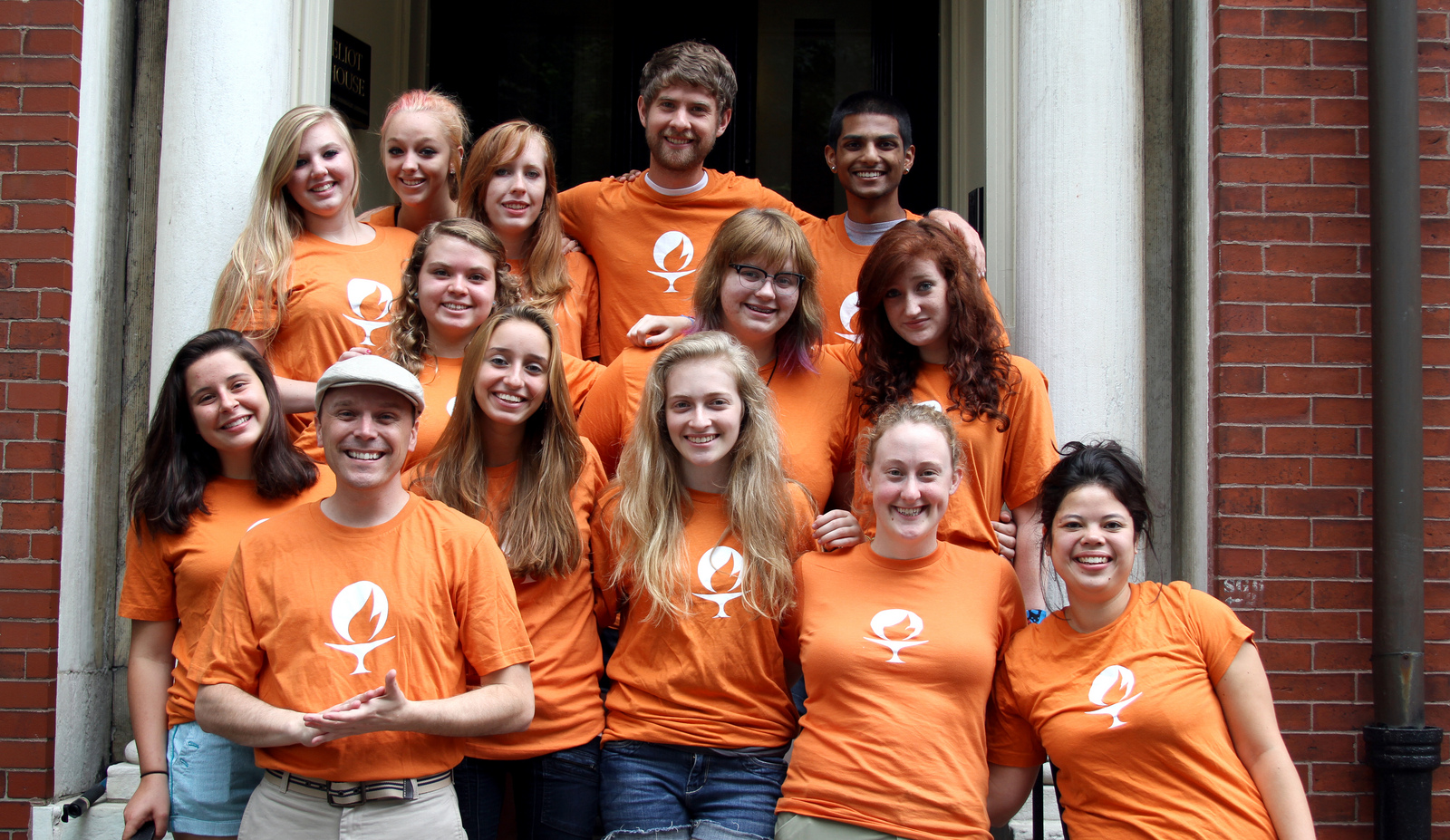
by Heather Vickery | Mar 20, 2013 | Youth
The following post was written by Elizabeth Nguyen, a program leader of the 2012 UUCSJ summer youth training. Nguyen will be leading the 2013 Boston Youth Justice Training, which will take place June 30–July 21.
On July 11, partway into last year’s youth justice program, our group packed up our sunscreen and water bottles from our home base in Boston’s historic Beacon Hill neighborhood and boarded a bus for Roxbury.
We had spent days packed full of rich experience: interactive, intensive learning; evening worships that found us building altars in our common space, walking silently through the city, and singing by the Charles River; moments of laughter playing games on the Boston Common and having an impromptu dance party; sharing our life stories through drawing; and immersing ourselves in questions of economic justice, learning from partners at UUSC and from young people at the Roxbury Youth Program. Now we were headed to meet with our partners at Haley House.
We’d learned about the housing discrimination that formed the foundations for the housing segregation we live today. We’d learned about the restaurant industry and the labor movement and organizations like the Restaurant Opportunities Centers United that are working to bring the two together. We’d learned a lot about why economic inequity exists and how it’s intertwined with race, gender, and sexual orientation.
Now we were off to encounter the economic inequality that is the reality in our world. We spent that sunny July day scraping paint in preparation for a new coat at the Haley House’s South End community kitchen followed by justice walking tour of Boston. The participants were delving into issues of gentrification, urban violence, and institutional racism. And they could see it — in the dwindling number of trash cans as we walked from the South End of Boston into the historically African American Roxbury neighborhood, in the increasing number of pawn shops and empty storefronts.
And then we felt it in our hearts as we encountered the beginnings of a vigil held for teen Lance Hartgrove, who had been killed in a stabbing the day before. As a ministerial student and a staff member at the summit, I’d led the group in conversation after hearing about Lance’s death. I wanted them to know the depth of tragedy, the loss that is real, that doesn’t happen out there in some anonymous city, but happens right here — in our cities. And also didn’t want our group of UUs, most with much economic and race privilege, to see Roxbury just as violence or grief. I didn’t want to perpetuate the media’s sensationalism, didn’t want to be any more complicit in a world that “others” crime and sees it as brown and black and young and male and gangs and robberies — not as white and white collar and rich and banks and lobbyists, the military-industrial complex, drones, and the murder that is the death penalty.
This is our world: broken, bleeding. And our religion as Unitarian Universalists calls us, not to turn away from the suffering, not to drive through Roxbury on our way to yet another suburb — but to love.
And I don’t mean easy love — smiling on the street, being kind to a neighbor. I mean the love that says both I won’t turn away from suffering and also I will know that it’s not enough to love without skill and action. Love calls me to get ready. To get trained. To learn about systems of class, race, gender, and heterosexism. Love asks me that I figure out what it means to receive the unearned privilege of these systems and what it means to be oppressed by these systems. Love asks me to learn the skills for making justice: facilitation, relationship building, teaching, listening, and writing. And it asks me to practice them. To practice them and to use them. And to do it out of love, as if our world depends on it. Because, yes, it does.
If you are a high school youth, you are already creating the world. You may be throwing your heart and hands against it and bending the arc of it ever more toward justice. You may be staring down at your hands, at your community, brokenhearted by the injustices. You may be watching on, feeling helpless to change anything. You may be torn, trying to give time toward causes that matter to you and also wanting to pursue the things that nurture your spirit: sports and friends, college and family.
Wherever you are in your journey as a teen, the Boston Youth Justice Training — learning, spirituality, community, and action — will get you ready. Join us!
Apply Here!
by Deva Jones | Feb 1, 2013 | Youth
Though it may seem overwhelming at first, you can afford to take part in youth programs with the UU College of Social Justice (UUCSJ)! How? Fundraising — a key skill for social justice work. Being able to talk about money and how it can express your UU values will serve you in your endeavors now and in the future.
First, remember that program fees cover on-the-ground costs, including lodging, meals, program transportation, required educational materials, and the services of program leaders before, during, and after the trip. Participants are responsible for covering the cost of their own airfare, transportation to program site, and health insurance.
Once your parent(s)/guardian(s) have filled out your application and you’ve been accepted, it’ll be time to start raising money. Keep in mind the following pointers:
- Talk honestly with your family about how much of the program fee they can pay for and how much you’ll need to fundraise.
- Ask for donations — from your congregation, individuals in it, important adults in your life, community organizations like Kiwanis and Rotary Club, local businesses, government offices, and nonprofits. Whether you use an online fundraising platform (like IndieGoGo or Kickstarter) or host an old-fashioned spaghetti dinner at your congregation, your community can’t support you as a justice leader unless you ask.
- Connect your fundraising to your faith — when you’re asking for donations from UU people or organizations, reference UU principles. Make the connection between your beliefs and why you want to attend a UUCSJ youth program.
Resources to support your fundraising:
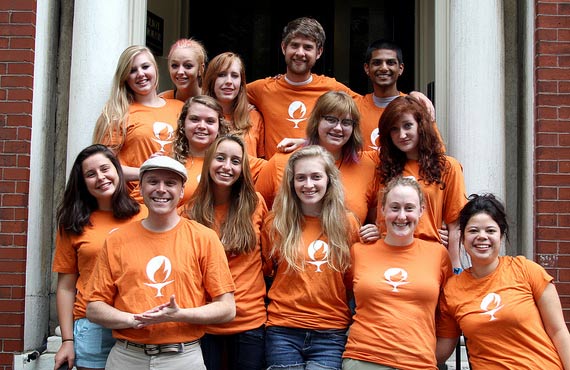
by Deva Jones | Aug 7, 2012 | Youth
Elias Estabrook was a recent grassroots mobilization intern at the Unitarian Universalist Service Committee (UUSC) whose work focused on engaging youth. Here he reflects on the National Youth Justice Summit, a UU College of Social Justice program that he attended in the final week of his internship.
Don’t ask yourself what the world needs. Ask yourself what makes you come alive and then go do that. Because what the world needs is people who have come alive.”
—Rev. Howard Thurman
What does this mean for young people like me? Rev. Howard Thurman’s widely cherished and respected words capture what I grapple with as I seek out opportunities to learn about the world and make a difference. Where and how will I discover what truly makes me come alive? And how can we help other youth discover that for themselves?
Over the past two months, after an eight-month immersion experience abroad, I’ve settled into UUSC’s office in Cambridge as an intern for grassroots mobilization. Just as I did in my rural, Senegalese host community, I’ve taken on the challenge of examining the role of youth in social change — and formulating ways for them to engage as leaders and aware members of society. In particular, I’ve focused on youth activism with respect to economic justice, from fair trade to restaurant workers’ rights.
In my final week, I had the opportunity to attend parts of the National Youth Justice Summit, a UU College of Social Justice program. It was a privilege to see how 10 young Unitarian Universalists — much like I was just a few years ago — are tackling fundamental questions about social justice and developing realistic visions for how they can be agents of change. During the week, the youth forged connections as they shared perspectives. They were united by not only their UU faith and their leadership qualities but also their joint motivation and aspiration to make a difference. And that week can serve as the jumping off point for something even bigger.
It was a blessing to end my stint at UUSC with such an interactive week. As we closed one of the sessions, assembled in a circle with joined hands, I voiced my gratitude for seeing my hopes for engaged young people manifested in the wisdom and determination of these eager leaders. Even though I spent much of my internship at a desk shaping important research and creative ideas into strategic information kits and workshop programs, being face-to-face with young UUs for a short time was ultimately the most gratifying. It made the youth-led social-justice movement I was envisioning and writing about incredibly real.
The world needs youth leaders to take on the complicated challenges of our time. But there are far too many for one young leader to take on alone. And so, as Howard Thurman believes, we need more youth who are intrinsically motivated and passionate about the good they can do in the world. As they explore, they will discover what they are most drawn to, whether it be campaigning for marriage equality or coordinating job-training programs for marginalized youth.
Bringing out this enthusiasm and conviction is, of course, easier said than done. Reaching and harnessing this energy was one of the greatest challenges of my work. How do you motivate youth to contribute to social action, to understand and get involved with an important human-rights campaign? These were the questions I pondered. Yet, after this National Youth Justice Summit, this task seems much more possible. Surrounded by lively, inquisitive, and invested youth, I find my optimism about our generation reaffirmed.
Questions about the National Youth Justice Summit? Contact us about this and more service-learning opportunities.





